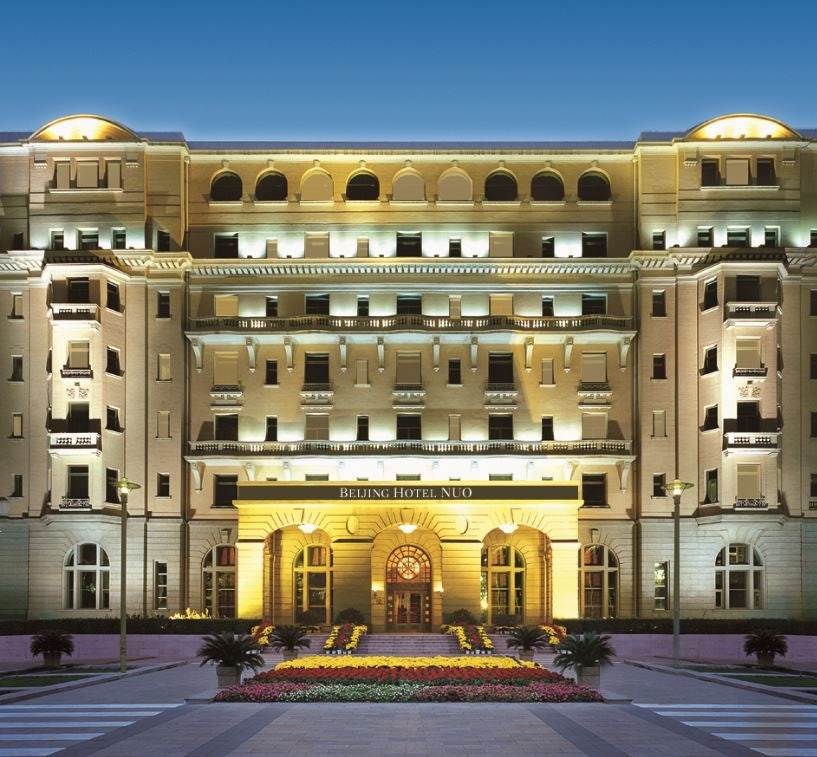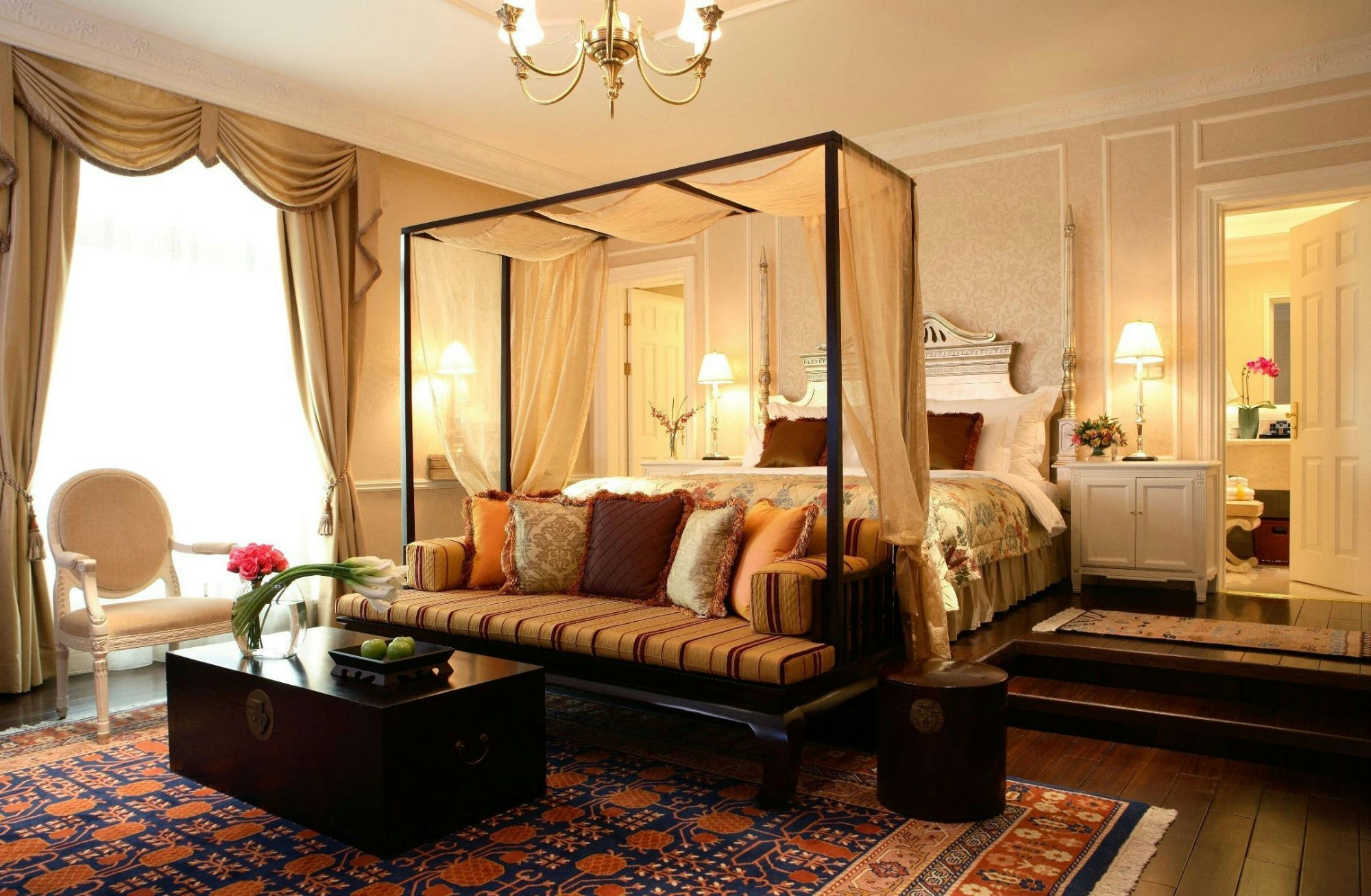In a hospitality move that reflects China's growing desire to have a piece of the domestic luxury travel market, Beijing's five-star, Chinese-owned NUO Hotels welcomed a second location to its growing portfolio. The hotelier has officially taken over Raffles Beijing Hotel, a five-star accommodation overlooking the Forbidden City.
NUO opened its first hotel last year with ambitions to alter China's luxury hotel landscape. Run by state-owned Beijing Tourism Group (BTG) and developed in conjunction with Kempinski Hotels, NUO calls itself one of China's first “homegrown five-star hotel brands” and a symbol of the “Chinese Dream.” While it's not the only player in China's domestic hotelier market, it is one that is very vocal about its plans for expansion outside of the country.
Raffles Beijing Hotel, now called Beijing Hotel NUO, first opened in 1917 as the Grand Hôtel de Pékin and played host to numerous members of royalty, celebrities, and national politicians over the decades, including President Richard Nixon and George Bernard Shaw. The 171-room hotel is located on Chang'an Avenue at the end of Beijing's famous high-end shopping and business street Wangfujing and boasts views of Tiananmen Square. The formerly French-run hotel is a standout choice for history buffs, and “the nearest thing Beijing has to a grand dame," according to The Telegraph. Mao Zedong held banquets there before the Great Hall of the People was built in 1959, and was said to have taken a turn on the wooden dance floor in what is now the Writers Bar.

Built in what was at the time the Foreign Legation Quarter, the hotel is now surrounded by two additional wings all operated by BTG. BTG first commissioned Raffles, which is owned by Canadian-based Fairmont Raffles Hotel International, to brand and manage the original section in 2005. The other two wings remain under different brands: Grand Hotel Beijing, a joint venture between BTG and a Hong Kong group, and Beijing Hotel.
BTG's replacement of Raffles with NUO essentially means a shift back to the Chinese brand, and it's possible this changeover could eventually take place with BTG's other international hotel companies. According to its website, BTG currently operates a handful of other foreign four- and five-star international brands in China, including Banyan Tree Sanya in Hainan and The Aman at Summer Palace in Beijing.
Beijing Hotel NUO's architecture and atmosphere are worlds away from the more contemporary, artistic style at NUO's first location near Beijing's 798 Art District. That hotel features work by renowned Chinese contemporary artist Zeng Fanzhi, and its design takes cues from the Ming Dynasty era. NUO promises that each of its hotels will feature “varying cultural style and design inspirations, being a showcase of a unique aspect of traditional Chinese culture or the history of the property's location.”
The company still has plans to expand in China, with locations planned for Shenzhen, Shanghai, and Guangzhou, in addition to international locations like New York, Dubai, and London. No opening dates for these locations have been officially announced.
The Beijing hotelier isn't the only Chinese luxury hotel brand moving to claim a significant portion of the domestic luxury travel market. After opening its 100th hotel in October, private property developer Dalian Wanda announced ambitious plans to be operating 160 hotels around the world by 2020, but in the past few months, it has been China's cities that are seeing new Wanda hotels and theme parks. Wanda's Chairman Wang Jianlin has been openly competitive with international hospitality brands. He recently announced his plans to outpace Disney's US$5.5 billion Shanghai theme park by reaching $100 billion in annual revenue by 2020.
